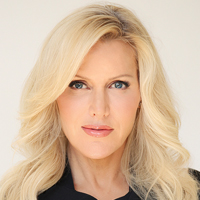
When I started my independent advisory firm in 2002, I was driven by the desire to do what was best for my clients — period. Like others who were staking out a space in the fee-only landscape at that time, I felt compelled to leave the commission-driven, wirehouse environment because of the conviction that as long as I had to “close sales” in order to generate my income, I would never be truly free to advise clients passionately and without regard to what was in it for me. I knew in my heart that fee-based advising put me on the same side of the table as my clients; if I did well for them, things would work out for me.
Over the ensuing years since those uncertain early days, our profession has come a long way. I’ve been fortunate to build a solid, loyal clientele and provide them with guidance based on high-caliber financial research. I’ve been blessed by finding mentors and a community of like-minded colleagues. I’ve been able to give back to younger advisors. I’ve had the opportunity to speak at many industry conferences. It has truly been a busy, wonderful, supremely meaningful ride.
Eventually, though, there comes a day in the career of every founder when it’s time to start thinking beyond the day-to-day affairs of the business, and even beyond the typical “five-year plan” horizon. Especially as a woman professional and a single parent, I realized several years ago that I needed a continuity plan for the approaching day when I would want and need to begin devoting time to other pursuits.
Even more importantly, I needed to know that if I got hit by a bus, someone would be there to take care of my clients. In our industry, we’re typically advised to begin the succession process five years prior to our intended actual transition date. And so, I started looking around.
My must-haves
As I began to think about my succession plan, several matters were paramount for me.
First, I was adamant that any partner I considered would be committed to the same level of personalized care that I had trained my clients to expect. I also needed to do everything possible to ensure that the team I had built at Empyrion Wealth Management would be treated well, not ground up in the gears of some corporate machine.
And of course, I wanted to obtain a competitive price for my business: one that fairly recognized the value Empyrion represented to the right partner. In all these considerations, my mantra was the same one I learned years ago from my dad, which has guided my approach to my business since its founding: “Never lead with money; lead with passion.”
I had a rather informal “handshake” agreement in place for a while, strictly as a contingency against my unexpected incapacity or death. But this understanding was reached during a time in our industry when mergers and reorganizations were being priced at low multiples of EBITDA (earnings before interest, taxes, depreciation and amortization) that were incompatible with the current market. By the time I started seriously searching for a merger partner, firms were going for over three times the amount I had previously been considering.
What worked for me
I encourage anyone considering a merger to spend serious time surveying the landscape. In my case, I benefited greatly, early on, from attending a presentation on succession planning hosted by Dimensional Fund Advisors that helped me get straight on a number of fundamental factors that would shape my decisions.
I also had the advantage of working with an advisor who was both familiar with our industry and experienced in helping other firms negotiate successful deals. In fact, I can’t emphasize this enough: Your CPA and your attorney are there to keep you out of the taxation and liability ditches, but an “advisor’s advisor,” who is experienced in the valuation and sale or merger of firms like yours, is essential if you want to make an agreement that is best for you and all other interested parties.
Before long, about six firms emerged as serious candidates. Over time, some of them fell away, as philosophical differences or incompatible business views came into play. I eventually narrowed it down to three “finalists” before concluding my agreement.
Mergers are like getting married
Using the matrimonial analogy, I decided early that if I was going to “get married,” I was going to marry up. In other words, I wanted to form my alliance with a partner who could offer my clients additional services, conveniences and other benefits that they weren’t presently receiving. I also knew that Empyrion needed to be a value-add for the relationship in order for it to be a win-win.
Ultimately, Mercer Advisors fit the bill on both counts. Their ability to offer estate planning, tax guidance and other consultative services for clients offers a type of convenience that I knew my clients would appreciate. In return, the outstanding marketing approach and extremely low client attrition rate that we had built at Empyrion held great appeal to Mercer Advisors. So, I guess you could say that there was “chemistry” that made pursuing a relationship interesting to both parties.
Additionally, I was attracted to Mercer Advisors because of its internal culture, which I found to be compatible with the way we operated at Empyrion. Its slogan, “a family office for ordinary people,” hit all the right notes for me, because that was what I felt we had built at Empyrion. I found — and continue to find — that the people at Mercer Advisors are kind, collaborative and flexible in their approach. All these qualities are tremendously important to me.
Critical questions
It should probably go without saying — but I’ll say it anyway — that the process of evaluating and consummating a merger will take you on a learning journey like you’ve never before experienced. Here are a few of the topics I had to wrestle with as I made the passage:
- Where do I want to end up when this transaction is concluded? Do I want a major equity position with the new firm, or would I rather have less equity and instead maximize my after-tax proceeds?
- What are the tax implications of the agreement? How can I minimize my tax consequences? If I’m a subchapter-S corporation, should I consider re-forming as a C corporation and forming a charitable remainder unitrust to receive the shares? This would all but eliminate capital gains and also create a lifetime income stream for the grantor and their beneficiaries. Will the merger partner allow this?
- What is the structure for the client retention bonus? A year? Two? Three?
- What happens if the market makes a big move before the deal is finalized? How would that affect the purchase price?
- If the potential partner is asking me to take a majority of the purchase price in the form of stock, why? Are they trying to conserve cash in order to do five more deals this year? If so, what does that say about their ability to focus on my firm and the needs of its clients?
- When I visit their offices, what kind of feeling do I get? (During one site visit, I experienced what felt like PTSD because the place felt so much like the wirehouse I left years ago to start my own business. Needless to say, this wasn’t at Mercer Advisors!)
- Is the potential partner experienced in communicating with the clients of merging firms? (This was a huge plus for me with Mercer Advisors — we clearly weren’t their “beta-test.” They had a transparent strategy for transition communications that was deeply beneficial to my clients, resulting in a 100% transfer of Empyrion clients to our new arrangement.)
Take a deep breath
You’ll probably come up with questions of your own as you go through the merger-evaluation process. In fact, that’s why it’s so important to have a guide who knows the terrain and the kinds of considerations that are important to independent advisors and their potential merger partners. You need to understand the company’s culture and business priorities before the agreement is signed, and the best way to do that is with the help of a well-informed but disinterested person who is in your corner.
Additional Reading: Blended Families Need Extra Solid Estate Plans
It’s a big challenge: performing due diligence, asking the right questions, and coming to a decision — all while maintaining the terms of non-disclosure agreements and not prematurely spilling the beans to your team or your clients. It can create some serious mental and emotional pressure. But in the end, it can result in the best decision for you, for your team, and especially for the clients who depend on you.
Kimberly Foss is a CFP® professional at Mercer Advisors practicing in the Sacramento Valley area. The opinions expressed by the author are her own and are not intended to serve as specific financial, accounting or tax advice. Mercer Global Advisors Inc. is registered with the SEC and delivers all investment-related services. Mercer Advisors Inc. is the parent company of Mercer Global Advisors Inc. and is not involved with investment services.







